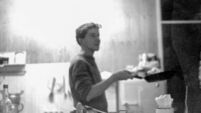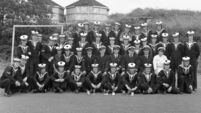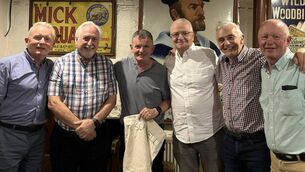Sex in the '60s in Cork... and the racy agony aunt who faced death threats
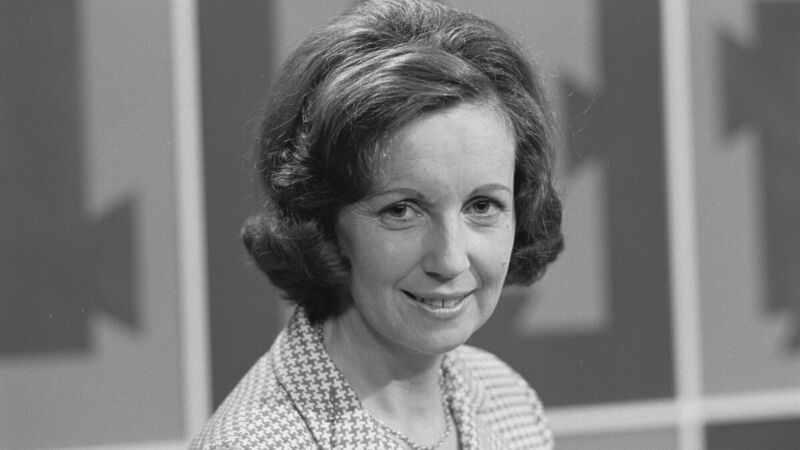
Angela McNamara was a popular newspaper agony aunt in the 1960s. RTÉ Stills Library
AT Farranferris, I gained a new-found belief that literature was the only true reality, a consequence in turn of my belief that only through literature and reading could I educate and liberate myself.
This was a handy rationalisation and excuse in the taboo area of sex, as it was almost the only way we had of getting to know about the business, and Angela McNamara’s agony aunt column in The Sunday Press in the 1960s became my Bible.
My interest was aroused when I heard mother remark that McNamara had sex on the brain. That sounded like a feast of pornography to me and on Sunday mornings after Mass, I’d sneak off into the front room to indulge. Some of the letters to her from furious parents were great craic:
“You are aware there are a lot of decent and innocent boys and girls still in the south of Ireland, teenagers who have never heard of that filthy expression ‘going too far’ until they read it in the Sunday Press. You are giving our young people rotten ideas to ponder over. I would love to see someone setting fire to you.” Mother of ten.
“A line of advice to you - please cut out the sex in your page in the Sunday Press. Tell the addicts to send you a stamped envelope and reply privately to them. If you do not want to do the paper harm, keep your page clean. Clean up your writing in all things concerning the state of matrimony. I do not believe you when you say you get some of those questions. If the Sunday Press continues to print such filth, I will expose it to other parents. Let us get rid of sex. Let us get together and rid it out and make our pens talk (not as yours).” Disgusted Belfast Parent
I got a great thrill out of the readers’ problems that afforded an insight into female psychology, ranging from the totally innocent to the flirtatious and the calculating:
“We are four worried 17-year-old teenagers. We are going to our first dance soon and a friend has told us to refuse a mineral from a boy because if you accept it you are supposed to spend the rest of the dances with him. We would like to know if this is true. Also, if a fellow asks you to go outside does this mean that he is bad? And what should you do if a boy asks you to go outside?”
“There are two boys in my life. I like the first one best, but the second one likes me best. I broke off completely with the first in hope that the second would become more interested in me. I don’t want to go with other boys so I’m just moping around.”
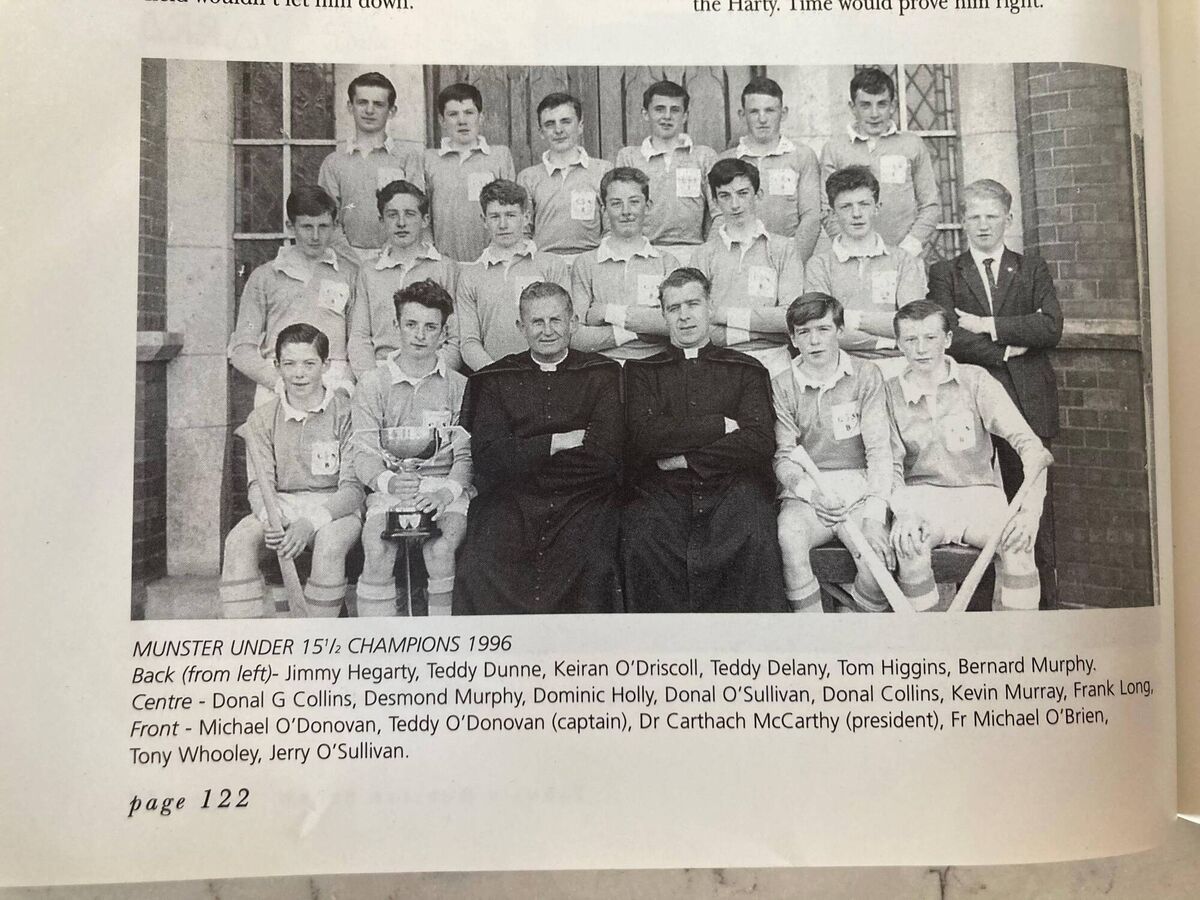
Others still, more appropriate to my own situation, I found helpful and instructive, and a great consolation to know there were plenty others out there like me:
“I’ve only been going to dances for a few months. I can bring myself to ask girls to dance but when dancing with them I just don’t know what to say to them. So it’s just ‘hello’ at the start and ‘goodbye’ at the end and that’s more or less all. I’m 18 and most of the girls I dance with are strangers. I feel awful dancing with nothing to say. Any time I tried talking they just say ‘yes’ or ‘no’. Please advise me on a way of making conversation.”
“Anytime I have asked a girl to have a mineral with me at a dance they nearly always refuse. After that I seem to be at a loss for words. I dance all the dances but I’ve never actually gone with a girl for a night nor had a date. I am 18.”
“You are a very sane sort of person. Please tell me what you think of The Beatles and their ilk. Personally I’m horrified by the whole trend, and I’m 18 - not an oul’ one.”
Limited and all as this was as a sex education programme, it served the purpose of being a great consolation to know you weren’t a freak when going through the trauma of puberty, and it still left plenty mystery and excitement to be experienced and enjoyed in the fullness of time.
In a sense, Farna prepared me for life in the same sort of way: none of this crap about the formation of the whole person, they just focused my vision, whetted my appetite, and let me loose in faith and trust. I had never dreamed or expected that education could set me so free.
******
Before going to Farna, I knew nothing about literature but our English teacher, who we called Aesop, opened the door for me.
He began in first year with Charlotte Mary Younger’s The Pass Of Thermopylae. Its simple profundity left an abiding impression.
All the best I’d ever read in comics seemed to come together and move up a gear in seriousness. The story of Alexander Selkirk showed me how a moral was tagged onto a tale.
The prescribed Shakespearean play was Henry IV, Part 1. I had always considered Shakespeare all drawing-room politeness, all convent girl stuff, and was pleasantly surprised to find him giving voice to my heroic spleen: “O the blood more stirs / to rouse a lion than to start a hare!”
I found the poetry great as well. Tennyson’s The Lady Of Shalott was all boom-boom breathless action: “She left the web, she left the loom. The curse is come upon me, cried the Lady of Shalott”. Walter de la Mare’s The Listeners was equally thrilling and I used to recite it in bed at night, complete with eerie dramatic effects, to frighten my brother John.
Milton’s On His Blindness appeased my youthful impetuosity in trying to make a name for myself almost overnight and the last line stopped me dead in my tracks: “They also serve who only stand and wait”. Hopkin’s Spring had the kind of sinewy force I liked to use myself: “Nothing is so beautiful as Spring / when weds, in wheels, shoot long and lovely and lush”. But I didn’t like the airy fairy stuff of Wordsworth’s Daffodils and parodied it:
I wandered lonely as a cloud
That floats on high o’re vale an hills
When all at once I heard a voice
Get off my feckin’ daffodils.
Both my parents and Thomas Davis had been right about education after all, those first three years in Farna really set me free. The novelty of English never wore off and the more I removed myself from the scenes from which they sprang, the more I revelled in the essays I wrote.
The ruins of Woodhill House where we sported and played many’s the long day inspired one of my more memorable efforts, called The Empty House. I treasured the copy I kept as a prop whenever I chose to write about my experiences of life thereafter.
The more essays I wrote, the more enthusiastic I became about giving literary expression to my childhood. ‘Twasn’t easy when the only literary example and influence I had was the Cork Evening Echo. I had no classical models to go on and could never be sure if what I wrote was orthodox text-book stuff.
After I had submitted The Empty House, Aesop asked me to come and see him in his room after class. “Feck it”, says I to myself, “I’ve blown it again”.
When I got there I was relieved to find that wasn’t the scene at all. Aesop wasn’t much given to compliments and didn’t say my essay was good or anything. He just asked if I’d ever read a book. He put it in a kindly, sensitive way so as not to embarrass me. I answered honestly, no.
“Is there any serious book you’d like to read,” he asked.
I said War And Peace, knowing that would qualify. He gave me a sympathetic smile and said he didn’t have a copy of Tolstoy just now and suggested I start with something lighter, like The Short Stories Of Liam O’Flaherty and Jane Eyre. “OK” I said.
The O’Flaherty stories I liked - hard, pithy and cruel - but I found the sentimentality of Jane Eyre a bit hard to take, and found Mr Rochester a pain in the arse.
But I finished it and when I brought them back in a fortnight, he gave me two more and that private borrowing arrangement continued for three years.
I started to keep a diary to record the impressions of all I read and filled a tome with solid, weighty critical judgements: The Old Man and the Sea - simple and profound; I didn’t have the words to say how it moved me, but I realised its simple profundity.
For Whom The Bell Tolls - made me smell and feel Spain and the soft spot we had for them since the time of the Armada.
I didn’t like John Mc Gahern’s The Barracks. I couldn’t fathom how things could be so rough and violent and gloomy in what could have been a blissful rural setting in Ireland in the ’50s. Were things really that bad? It brought home to me that, though we didn’t have much, we had an awful lot on the Lower Road.
I read all of Dickens, David Copperfield was my favourite. I got a good grounding in the great world classics, particularly the Russians: Dostoevsky, Tolstoy and Turgenev.
One day Aesop said he thought I had had enough of that tack and was going to try me on something new. He gave me The Catcher In The Rye, I read the first sentence - it blew all my David Copperfield sentimentality out of the water.
On a literary high, writing took over my every activity, I retreated into the fantasy world of my diary and for me it became a case of life imitating art.
I wrote on April 26, 1967: “I want to be a writer. I want to express my feelings, particularly my feelings about life and death. I want to teach people by appealing to their emotions. I want to have influence. I want to make people withdraw a moment from the frantic pace of the cities and realise that all this hurry, this zeal for wealth, fame, fortune, is unprofitable; that this life is but a click of your fingers compared to the millennium of eternity.”
